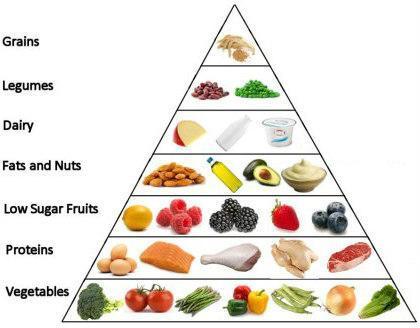
The Ten Keys to a Happy and Healthy Family
Do you ever think about what may occur if the father or child of the household got sick?
Depending on how you approach the issue, different things will happen. The most frequent cause of an unhealthy life is obesity. You cannot adequately perform your everyday responsibilities if you or any other family member is overweight.

Importance of fit family:
Fitness in the Family Is Important. A healthy individual is able to experience life to the fullest. Physical fitness should be ingrained in children from an early age and is not just a way of life but also a crucial habit.
A healthy individual is able to experience life to the fullest. Physical fitness should be ingrained in children from an early age and is not just a way of life but also a crucial habit. As we are all aware, behaviors that we pick up as children stick with us and become a part of our lives. This brings up the subject of family fitness. Having a healthy family makes them happier. Parents should instill these healthy practices in their young children.
Living a healthy lifestyle is crucial in today’s society because many children suffer from obesity and other disorders due to their sedentary lifestyles, unhealthy diets, and reliance on technology, which makes them even more susceptible to these illnesses.
Living a healthy lifestyle becomes crucial for the entire family as well as for the individual.
Ten Secrets For The Fit Family:
It goes without saying that a lot of parents and their kids are overweight. These ten straightforward “secrets” might assist you in modifying your family’s lifestyle so that you are all fit and healthy.

1) Consume whole grains
White bread, white rice, cereal, pasta, and other meals manufactured with white flour are processed and refined grains that have a higher glycemic index, less fiber, and fewer vitamins and minerals than those prepared with whole grains. Making the switch to whole grain products, such as whole wheat bread, whole grain pasta, brown rice, and whole grain cereals, is a simple and healthy way to improve the nutritional value of your family’s diet.

2) Avoid excess soda and fruit juices
Fruit drinks and sodas are high in calories and lacking in nutrients. If your children consume only one can of soda each day, which has roughly 150 calories per 12-ounce portion, they will put on an extra pound every three weeks or so.
A simple method to get rid of a lot of unneeded calories and make room for your kids to consume more healthy meals is to reduce or completely stop consuming soda, fruit drinks, and even fruit juice.

3) Increase Your Fruit and Vegetable Intake
Most kids don’t consume enough fruits and vegetables, which typically implies they’re consuming other less healthy things instead. Fruits and vegetables are an essential component of a healthy diet since they have a high fiber content as well as several vitamins and minerals. Eating fruits and vegetables can also help you feel full and satisfied since they are high in water content, which can prevent you from overeating.

4) Consume More Calcium-Rich Foods
People frequently cease drinking milk, eating cheese, and consuming yogurt when attempting to reduce weight. Calcium is crucial for the development of strong bones and for weight loss. To aid in weight loss and the maintenance of a healthy weight, you should urge your children to consume low-fat milk, cheese, and yogurt in moderation.

5) Exercise More
Everyone is aware that individuals are considerably less active than they used to be, which is a contributing factor in the present obesity epidemic. Cutting down on time spent in front of the TV, internet, and playing video games will help youngsters get more active and increase their fitness levels. These activities can be either team or individual sports.
Another great approach to increase your physical activity is through family activities. Going for little family walks or bike excursions, utilizing the stairs, and other seemingly insignificant actions can all have a significant impact.

6) Understand the Sources of Calories
Even though you don’t have to track calories every day, keeping a food journal for a few days will help you identify where additional calories are coming from. Are your kids overweight as a result of the two glasses of Kool-Aid or soda he consumes or the night snack they consume? Or perhaps it’s because his serving sizes are too big?
Knowing where your children’s calories are coming from will help you make changes and reduce portions, especially when it comes to meals that are high in empty calories.

7) Get to Know Carbs
Especially with all the advocates of high-protein diets like the Atkins and South Beach Diet, carbohydrates have a terrible reputation. Carbs are not all made equal. Other carbohydrates should be a component of a balanced diet, even if it is advisable to avoid items that have been refined, such as white bread, dishes produced with white flour, and foods and beverages sweetened with sugar.
Instead of eliminating all carbohydrates, learn how to select meals that include “healthy” carbohydrates, such as fruits, vegetables, and legumes.

8) Recognize Fats
There are “good” and “bad” fats, just like there are. You should eat foods that contain “good” fat rather than the error of trying to follow a low-fat diet and simply substituting other foods that are frequently just as high in calories. Foods containing polyunsaturated and monounsaturated fats are included in this. Conversely, trans fats and saturated fats should be avoided.

9) Pick Healthier Options When Dining Out
If you consume oversized fast food meals a few times a week, your family is still likely to be at risk of gaining weight even if they eat nutritious meals at home. If you frequently dine out, study the menu’s nutritional information and pay attention to your portion sizes. When eating out, calories and fat can pile up!

10) Stay positive
Most individuals are aware of the steps they must take to improve their health, yet eating well and exercising regularly is difficult. Your family can stay fit and healthy by learning about the specifics of a healthy diet, involving everyone, and setting goals. To stay on the healthy path, hire a personal trainer or consult a dietitian.

Benefits of a healthy family
Some medical professionals think that getting the whole family moving may be the best way to combat rising obesity rates and deteriorating family stability.
Children who exercise have better mental and physical health as well as higher self-esteem and less anxiety. Participating in physical activity together strengthens family ties and lifts everyone’s spirits, parents and kids alike. Even a better night’s sleep and better work and academic performance are advantages.
Conclusion:
Family is significant because happiness depends on a happy family. In an effort to change the world, we went into great depth on the top ten keys to a happy family. Don’t be negative, and include a healthy diet.






